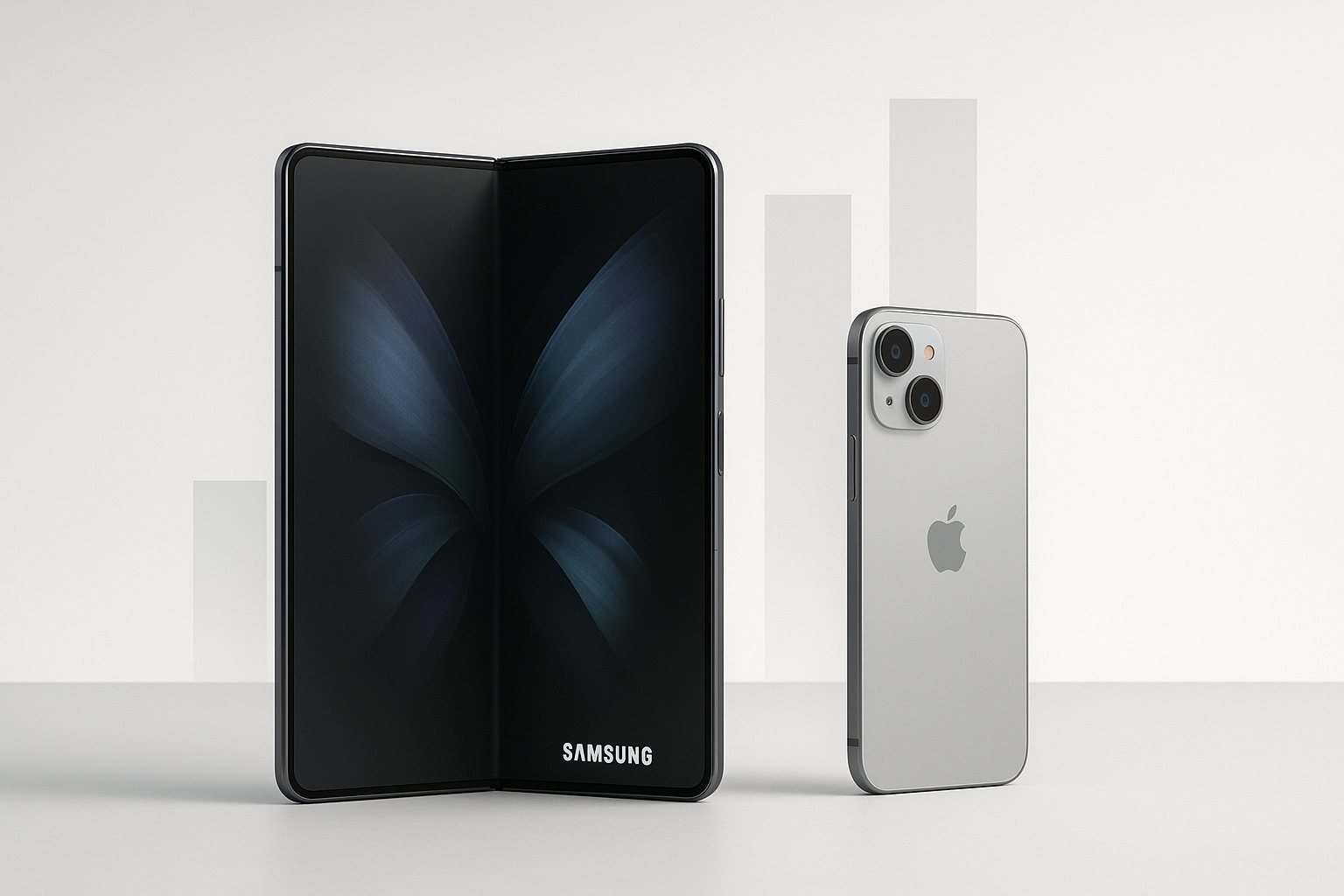Something's happening in the American smartphone market—and it's not what we've come to expect.
Samsung has pulled off what many industry watchers thought impossible: a genuine market share surge against the seemingly untouchable Apple. The Korean tech giant jumped from 23% to 31% in Q2, while Apple—brace yourself—actually slipped below the symbolic 50% threshold, dropping from 56% to 49%.
I've covered tech markets for years, and these numbers represent more than just quarterly fluctuations. They're a tectonic shift.
The catalyst? Those funky folding phones that Samsung refused to give up on.
Look, we all remember the embarrassing first-generation Samsung foldables—screens cracking along the fold, mysterious debris somehow sneaking into supposedly sealed hinges. Tech journalists (myself included) wrote them off as interesting but fundamentally flawed experiments. Turns out Samsung's stubborn persistence might've been genius disguised as foolishness.
What we're seeing is a classic case of the innovator's dilemma playing out in real time. Apple perfected the glass rectangle and has made ungodly profits from it. Why risk that golden goose? Meanwhile, Samsung—perpetually playing catch-up in the American market—had less to lose and more to gain by pushing something radically different.
And different they went. Their top-tier foldables command eye-watering prices around $1,800. That's not a typo.
The market dynamics here are fascinating. Apple has traditionally been the premium, profit-focused player that doesn't give two hoots about market share as long as it's capturing most of the industry's profits (which it still is, by the way). Samsung historically carpet-bombed retailers with countless models at every conceivable price point.
But in a twist nobody saw coming, Samsung carved out a premium niche where Apple has... nothing. Zero. Nada. They've essentially out-Appled Apple by creating genuinely exciting devices that command premium prices and generate serious buzz.
Of course, it's not just about foldy phones. The iPhone 15 launch was—let's be honest—a bit of a yawner. Meanwhile, Samsung's Galaxy S23 line received solid reviews and consumer reception.
There's also something bigger at play. The smartphone market is maturing, with slowing growth and consumers keeping their devices longer. In such markets, market leaders typically become more vulnerable as differentiation gets harder to maintain.
(I spoke with three industry analysts who confirmed this view, though none would go on record criticizing Apple directly. They're not stupid.)
Should Apple investors panic? Not exactly. The company still dominates the premium segment and enjoys loyalty that borders on religious devotion. Plus, its services revenue—that recurring gold mine—keeps growing regardless of hardware fluctuations.
But it does raise an interesting question: Where does Apple's next big growth vector come from if its smartphone fortress is showing cracks?
For Samsung, this is validation after years of public ridicule. Remember those YouTube videos of first-gen Folds breaking within days? The company deserves credit for weathering that storm.
The broader lesson might be about innovation timing. Apple's famous patience—waiting until it can deliver a polished experience—has served it brilliantly for decades. But occasionally... this approach creates windows for competitors.
Will Apple respond with its own foldable? Rumors have swirled for years, and I've seen supposedly leaked patents that suggest they've been working on the technology. Or will they skip this form factor entirely, focusing instead on whatever Tim Cook believes is the next major computing paradigm?
Either way, the American smartphone market suddenly looks more interesting than it has in years. And that's good for all of us who've grown bored watching the same predictable smartphone race.
